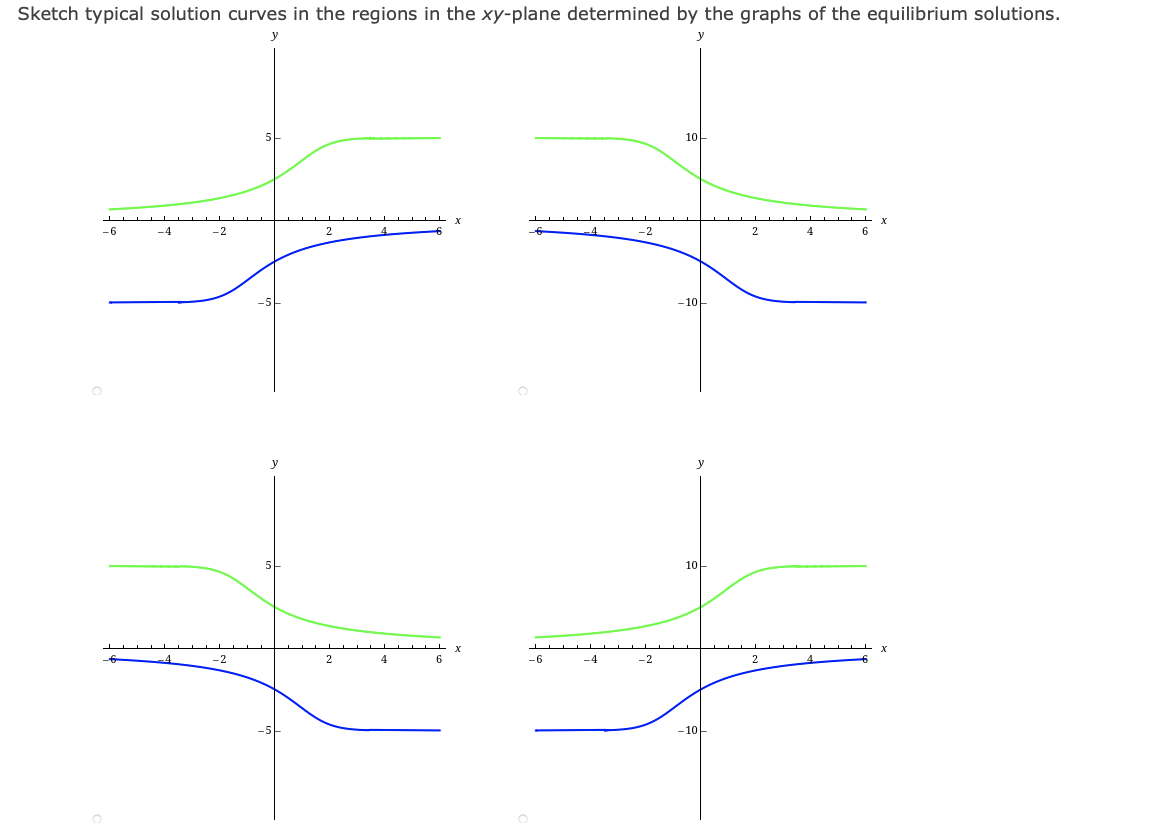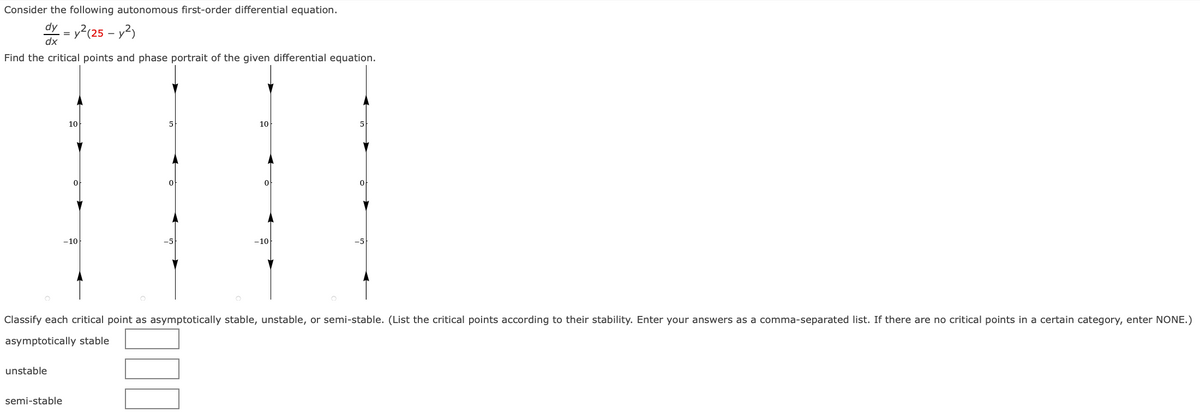Consider the following autonomous first-order differential equation. dy - y?(25 - y?) Find the critical points and phase portrait of the given differential equation. 10 10 -10 Classify each critical point as asymptotically stable, unstable, or semi-stable. (List the critical points according to their stability. Enter your answers as a comma-separated list. If there are no critical points in a c asymptotically stable unstable 00
Consider the following autonomous first-order differential equation. dy - y?(25 - y?) Find the critical points and phase portrait of the given differential equation. 10 10 -10 Classify each critical point as asymptotically stable, unstable, or semi-stable. (List the critical points according to their stability. Enter your answers as a comma-separated list. If there are no critical points in a c asymptotically stable unstable 00
Calculus: Early Transcendentals
8th Edition
ISBN:9781285741550
Author:James Stewart
Publisher:James Stewart
Chapter1: Functions And Models
Section: Chapter Questions
Problem 1RCC: (a) What is a function? What are its domain and range? (b) What is the graph of a function? (c) How...
Related questions
Question

Transcribed Image Text:Sketch typical solution curves in the regions in the xy-plane determined by the graphs of the equilibrium solutions.
y
10-
X
X
-6
-4
-2
2
4.
-2
4
-10-
10
X
4
-2
2
4
6.
-4
-2
-10-

Transcribed Image Text:Consider the following autonomous first-order differential equation.
dy
= y²(25 – y²)
dx
Find the critical points and phase portrait of the given differential equation.
10
5
10
-10
-10
-5
Classify each critical point as asymptotically stable, unstable, or semi-stable. (List the critical points according to their stability. Enter your answers as a comma-separated list. If there are no critical points in a certain category, enter NONE.)
asymptotically stable
unstable
semi-stable
Expert Solution
Step 1

Trending now
This is a popular solution!
Step by step
Solved in 2 steps with 2 images

Recommended textbooks for you

Calculus: Early Transcendentals
Calculus
ISBN:
9781285741550
Author:
James Stewart
Publisher:
Cengage Learning

Thomas' Calculus (14th Edition)
Calculus
ISBN:
9780134438986
Author:
Joel R. Hass, Christopher E. Heil, Maurice D. Weir
Publisher:
PEARSON

Calculus: Early Transcendentals (3rd Edition)
Calculus
ISBN:
9780134763644
Author:
William L. Briggs, Lyle Cochran, Bernard Gillett, Eric Schulz
Publisher:
PEARSON

Calculus: Early Transcendentals
Calculus
ISBN:
9781285741550
Author:
James Stewart
Publisher:
Cengage Learning

Thomas' Calculus (14th Edition)
Calculus
ISBN:
9780134438986
Author:
Joel R. Hass, Christopher E. Heil, Maurice D. Weir
Publisher:
PEARSON

Calculus: Early Transcendentals (3rd Edition)
Calculus
ISBN:
9780134763644
Author:
William L. Briggs, Lyle Cochran, Bernard Gillett, Eric Schulz
Publisher:
PEARSON

Calculus: Early Transcendentals
Calculus
ISBN:
9781319050740
Author:
Jon Rogawski, Colin Adams, Robert Franzosa
Publisher:
W. H. Freeman


Calculus: Early Transcendental Functions
Calculus
ISBN:
9781337552516
Author:
Ron Larson, Bruce H. Edwards
Publisher:
Cengage Learning